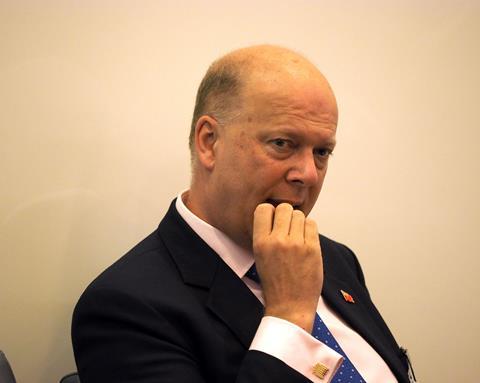The Ministry of Justice should be commended for taking urgent steps to save the probation service, but why does it often take legal action for the government to look again at its reforms?
Chris Grayling presided over the Ministry of Justice for less than three years. But, four lord chancellors later, the legacy of the now-transport secretary still plagues the justice system. A week after parliament broke up for summer, the government outlined plans to replace Grayling’s ‘challenging and ambitious’ probation reforms.

Pre-Grayling, probation services were run by 35 self-governing probation trusts, working under the direction of the National Offender Management Service. Grayling decided to replace these with the National Probation Service, which would manage high-risk offenders and advise the courts, and 21 community rehabilitation companies (CRCs), which would supervise low- and medium-risk offenders and provide resettlement services to released prisoners.
The plan is now seen as one of Grayling’s many disasters. In September 2016, Meg Hillier, chair of the House of Commons Public Accounts Committee, warned that the MoJ might have ‘bitten off more than it can chew’. Eighteen months later, the committee concluded that the department was a long way from delivering the ‘rehabilitation revolution’ it had promised. The ministry was unable to explain what it was getting back for the extra £342m of taxpayer money it had committed to stabilising its CRC contracts, the committee added.
Last month the House of Commons Justice Select Committee said it was ‘unconvinced that as things stand the Transforming Rehabilitation model can ever deliver an effective or viable probation service’.
The MoJ’s latest probation announcement, which includes ending CRC contracts two years early, prompted shadow chancellor John McDonnell to declare that Grayling should never be let near a government department again: ‘Chris Grayling’s disastrous decision to privatise the probation services has left taxpayers with a bill of over half a billion pounds. That money could and should have been used to tackle NHS waiting lists, support cash-starved schools and fund care for the elderly and vulnerable.’
The ministry should be commended for deciding to take ‘urgent action’ to strengthen probation services. But the amount of time, speeches and cash it has dedicated to this particular section of the justice system begs the question: why doesn’t the MoJ do the same for other parts?

Why, for instance, has the ministry not been as willing to stage a similar intervention to stem the bleeding from its controversial legal aid cuts? Many organisations, including Amnesty International and the Law Society, have shouted loud and long about the casualties of the Legal Aid, Sentencing and Punishment of Offenders Act 2012. The Society predicts that criminal defence solicitors are on the way to becoming extinct.
The justice committee recently said the fragility of the criminal legal aid sector is placing human rights at risk. Meanwhile, the joint committee on human rights said the government’s legal aid safety net scheme (exceptional case funding) was expected to support up to 7,000 cases a year. In reality, it only funds hundreds.
Why does it often take legal action, or the threat of it, to make the government look again at its reforms?
To strengthen probation, the MoJ will ‘invest’ an extra £22m a year to improve resettlement provision for released prisoners. Criminal barristers had to take direct action to get the ministry to cough up £15m to invest in the justice system.
Since the start of the year domestic violence victims have no longer had to endure harsh evidence tests to qualify for legal aid. However, the changes were introduced after campaign group Rights of Women, with the Law Society’s support, successfully fought rules introduced in 2013 that required victims to provide a prescribed form of evidence to apply for family law legal aid.
Justice minister Lucy Frazer QC confirmed last month that legal aid will be extended to immigration matters for unaccompanied and separated children – after the MoJ examined evidence presented as part of a judicial review brought by the Children’s Society and government data on funding applications.
The ministry says probation services ‘are at the heart of an effective criminal justice system’. They are, but they represent just one valve. There are many others that urgently need operating on.



























2 Readers' comments